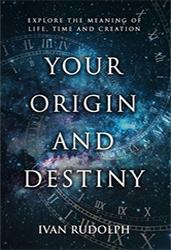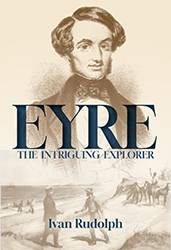Overlanders and Cowboys
‘The drover’s life has pleasures that the townsfolk never know….
He sees the vision splendid of the sunlit plains extended,
And at night the wondrous glory of the everlasting stars’, Banjo Paterson – 1889
Despite their feats having only just begun, overlanders were already folk heroes and topics of everyday conversation by 1838.
The two that raised most enthusiasm and conjecture were Edward John Eyre and Joseph Hawdon.
But what precisely was an overlander? In simple terms, they were the drovers of stock across significant distances of the Australian bush.
This made them the Australian equivalent of the cowboys of the American Wild West. Both enjoyed in popular culture a romantic image of brave, skilled men with dash and glamour. What is not commonly realised is that the celebrity of the overlanders predated that of their American counterparts, the cowboys of the Wild West, who rose to prominence only around three decades later in the late 1860s.
There are distinctions of degree between the overlanders and American cowboys. These early overlanders were perceived to be public benefactors and worthy gentlemen, who were comfortable dining with governors and attending balls and the other trappings of high society. They were liked and respected, and their company sought after. Even prominent American cowboys were not always viewed in such a favourable light by society, and were often perceived as being rougher and more lewd.
Furthermore, the early overlanders were different in that they were folk heroes, never villains. While they generally chased monetary rewards, some such as Eyre and Sturt embraced in addition the altruistic notion of helping settlers earn a livelihood, by providing stock. Their impact on fledgling economies was startling. Governor Grey in 1841 wrote: “The first entrance of an overlander into a district may be compared with the rising of the Nile upon the thirsty lands of Egypt; then does the country bear fruit and the land give forth her increase.”
Overlanders formed a rarefied clique of their own. When one hit town, the others would visit him and often as not share meals, witty conversation, anecdotes from recent adventures and what the conditions were like along the track. The cowboy of America also hit town, but getting drunk was rather more what he became known for. As a consequence, the citizenry generally disapproved of certain cowboy behaviour while the early overlanders were universally admired.



